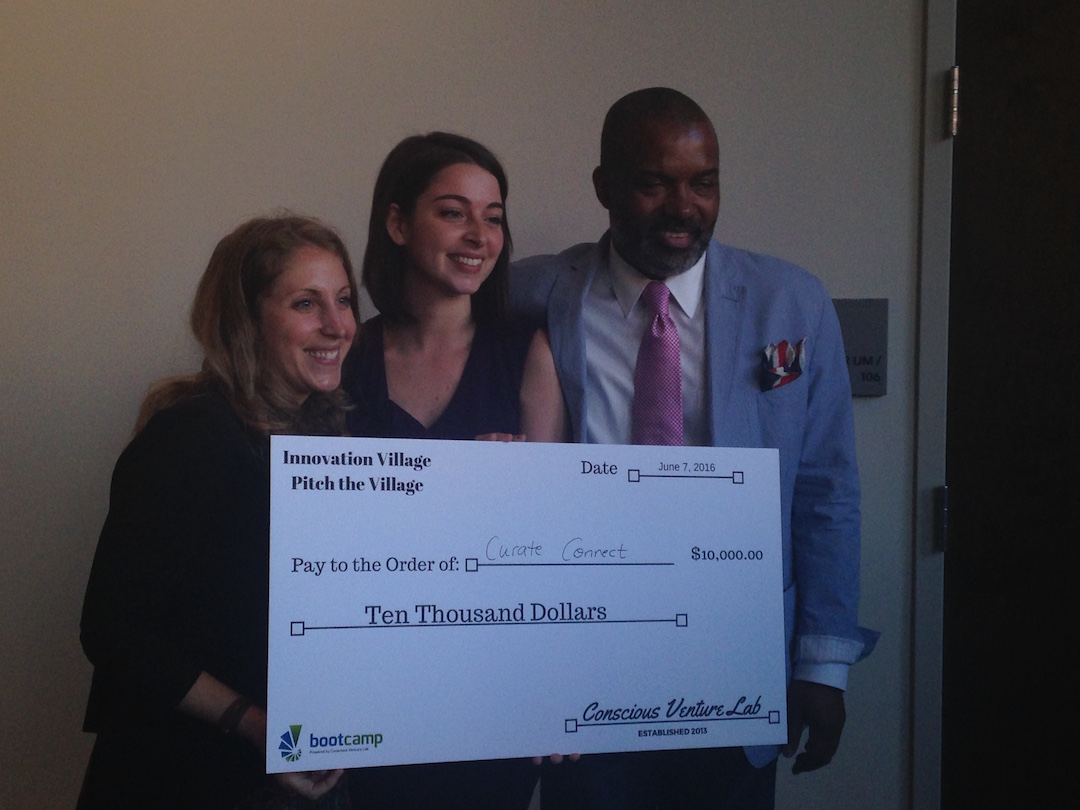Food and bev entrepreneurs have a lot of places to sell what they make, but Kim Bryden knows that stable cash flow from deals with bigger buyers is key to growing.
In organizing events like the Made in Baltimore vendor fair, she put small businesses and big buyers in the same room together and found that similar pain-points emerged: The entrepreneurs often needed help with business development and marketing; likewise, the buyers, ranging from grocers to hotels to event planners, want to work with local businesses but need to find the right way to make it a part of their process.
So that’s where Bryden’s Cureate Connect comes in. The matchmaking platform is launching publicly today.
Bryden is leading a team of six people, who range in full- and-part-time commitments. The platform was built from scratch. Bryden used her own knowledge of Squl and Photoshop to produce mock-ups, and worked with developers. She’s diving into a CEO’s role of “wearing so many different hats,” and embracing the process of building the company.
“I think often we’re primed to think abut the outcome and forget about the process,” she said in a recent interview.
The small businesses, which do not pay, get a landing page to get the word out and a chance to make connections. Buyers, who pay $64.99 a month, can filter their searches, and message the entrepreneurs directly to get the questions answered.
“We just wanted to make it easier for people to find one another,” she said.

Bryden’s presentation on Cureate Connect won a pitch competition organized by Innovation Village in June, providing $10,000. Since then, she launched the platform in beta with 70 vendors like The Big Bean Theory, BLK Sugar and Gundalow Juice. The numbers grew to include 250 vendors in Baltimore and D.C. (Read Technical.ly DC’s profile here.)
But it’s perhaps easiest to understand the company through one such connection.
Bryden offered the example of City Seeds, the catering-oriented social enterprise run by Humanim, which used the platform to find locally-made snacks to sell at cafes and kiosks it was running at various spots in the new Exelon building in Harbor East. Bryden points out that most of the businesses were women-owned, reflecting the fact that 50 percent are women-owned on the platform overall.
That’s the kind of local economy the platform is made to build.
This pitch competition winner is launching her platform for food entrepreneurs







